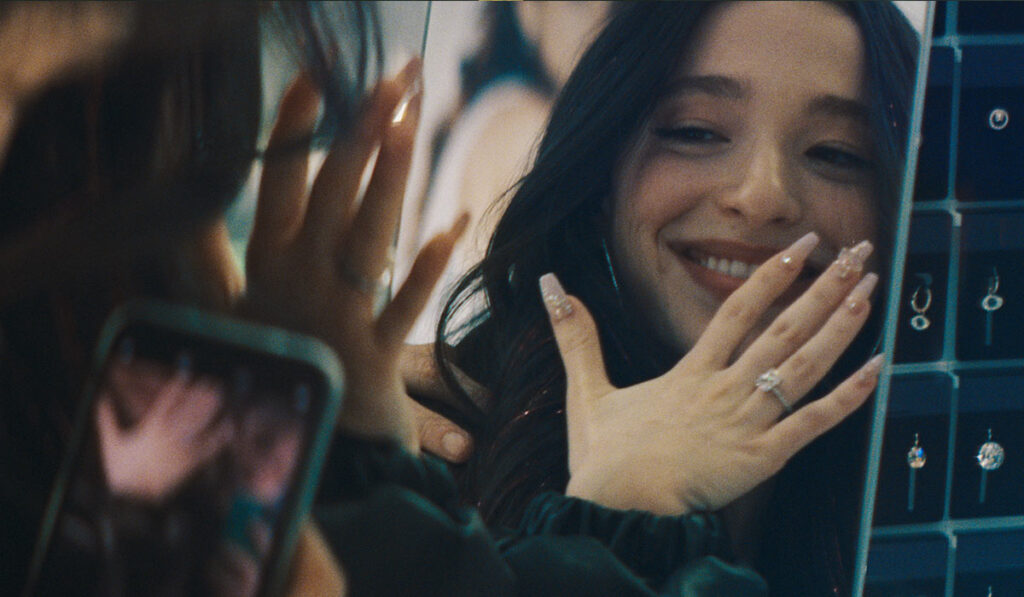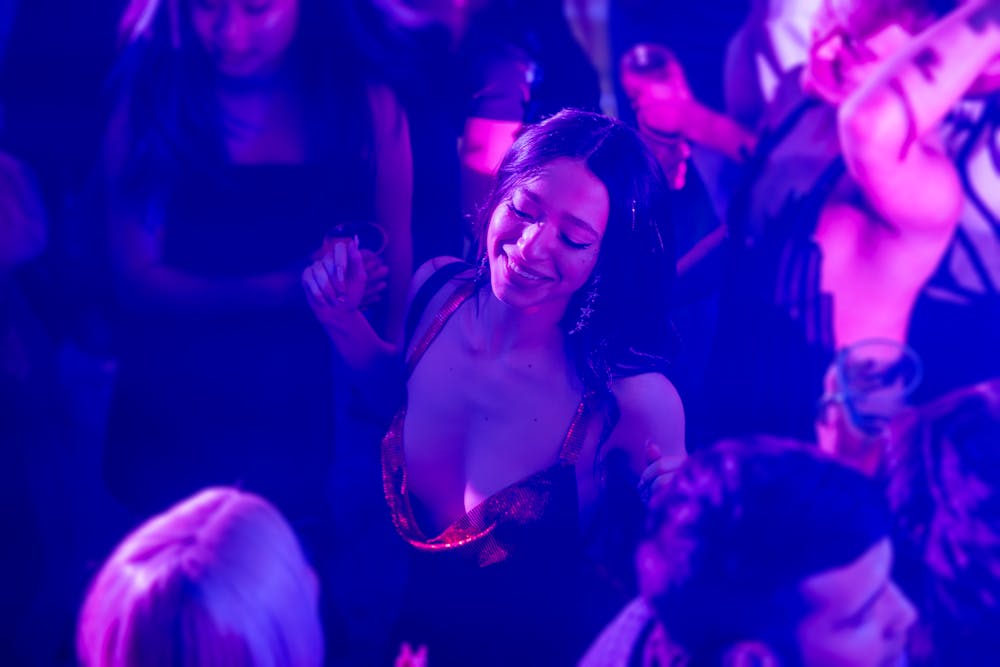At the end of Sean Baker’s “The Florida Project” (2017), two little girls ran toward Disney World, but they would never breach its gates. They were stranded in a maze of Florida motels and parking lots, struggling in the shadow of the Magic Kingdom.
In “Anora,” Baker’s latest harrowing romp, Ani (Mikey Madison), wants to live like a Disney princess, but she never will. No matter how many grotesque princes pay for the pleasure of her company, she can never sit beside them on a throne.
Or can she? “Anora” styles itself as an anti-“Cinderella”: a freewheeling, foul-mouthed assault on the myth of the impoverished ingénue elevated to royalty. Yet like many of the men in the film, Baker can’t see past the empty, alluring image Ani tailors for the male gaze—a failure of vision that pumps up the paternalistic ideals the movie purports to expose.
Just as Ani, a Brighton Beach sex worker, seduces her clients, “Anora” seduces us. As the film begins, the camera glides through the crimson gleam of a strip club called Headquarters, passing a row of lap dancers to reveal Ani: pale face, bright smile, sparkly strands in her streaming dark hair.
Ani skillfully embodies a cartoon of femininity that straight men love: the woman-girl who is part temptress, part cheerleader, and all object. “You don’t have cash?” she coos to a reluctant customer. “Let’s go to the ATM!” Squint hard and you’ll see the canniness behind her playful façade.
Ani’s cunning is put to the test by Vanya (Mark Eydelshteyn), the 21-year-old son of a Russian oligarch. Deep-pocketed and deeply horny, Vanya hires Ani to be his girlfriend for a week, then ups the ante by proposing. “Three karats,” Anora demands, raising her ring finger. One Las Vegas elopement later and the deal is done.
Watching “Anora,” I wanted to believe that Ani was too savvy to fully succumb to her slimy suitor. Yet even when Toros (Karren Karagulian), a harried henchman working for Vanya’s parents, offers to pay Ani $10,000 if she has the marriage annulled, she insists that she loves Vanya. Money may talk, but romantic delusions yell.

When Vanya flees and goes on a night-long drinking binge, “Anora” becomes a zany quest for a drunken fugitive. Forging a combustible alliance, Ani joins Toros and his stoic sidekick Igor (Yura Borisov) to hunt down her missing hubby, still clinging to her conviction that their romance is more than an apparition born of Vanya’s callousness and her naïveté.
Ani, Toros, and Igor’s shambling search echoes Baker’s “Tangerine,” in which Sin-Dee Rella (Kitana Kiki Rodriguez), another sex worker, scoured the streets of Los Angeles for her elusive boyfriend/pimp. But in “Tangerine,” Baker seemed to be capturing reality, whereas in “Anora,” he creates it, trading verité vibrance for cinematic elegance.
The most infuriating symptom of the film’s falseness is Igor, who emerges as the film’s requisite #NotAllMen character. Sure, he binds and gags Ani when they first meet (ugh), but did you see how the orange scarf he gives her is the same shade as the sunset? What a gentleman! (Again, ugh.)
Sin-Dee and the impressively un-precocious six-year-old Moonee (Brooklynn Prince) from “The Florida Project” had me convinced that Baker knew how to write tough, troubled women and girls. But “Anora” is bizarrely uninterested in Ani’s inner life and obsessively fixated on the men who either betray or defend her.
Wherever she goes, Ani is besieged by Y chromosomes. Her roommate is a nagging nonentity and her colleagues are reduced to cameos—while Toros is gifted a hefty, random monologue about disrespectful millennials to deliver to exasperated diner patrons (admittedly, this is the most uproarious scene in the movie).
Firing off such baroque insults as “faggot-ass bitch,” Madison gleefully asserts the gravity of her charisma (did no one have the guts to tell Baker that empowering women means giving them more to do than spew swear words?). But Madison is too outnumbered to pull the film into her orbit—and she’s undermined by Baker’s decision to deploy Igor as a surrogate for salivating males in the audience.
Unable or unwilling to accept a world in which Ani has no male protectors, Baker fashions Igor as a dark-horse prince to replace Vanya. Ani insists that Igor has “rape eyes,” yet in an absurd final scene, she surrenders to his attentions, making love to him in a car and then falling into his arms, weeping.
So this is what it’s come to: After the hard-won realism of “Tangerine” and “The Florida Project,” Baker has resorted to regurgitating tired, icky male fantasies of phony chivalry and female submission. Ani may choose to be a sex worker, but it’s Baker who turns her into a prostitute.



